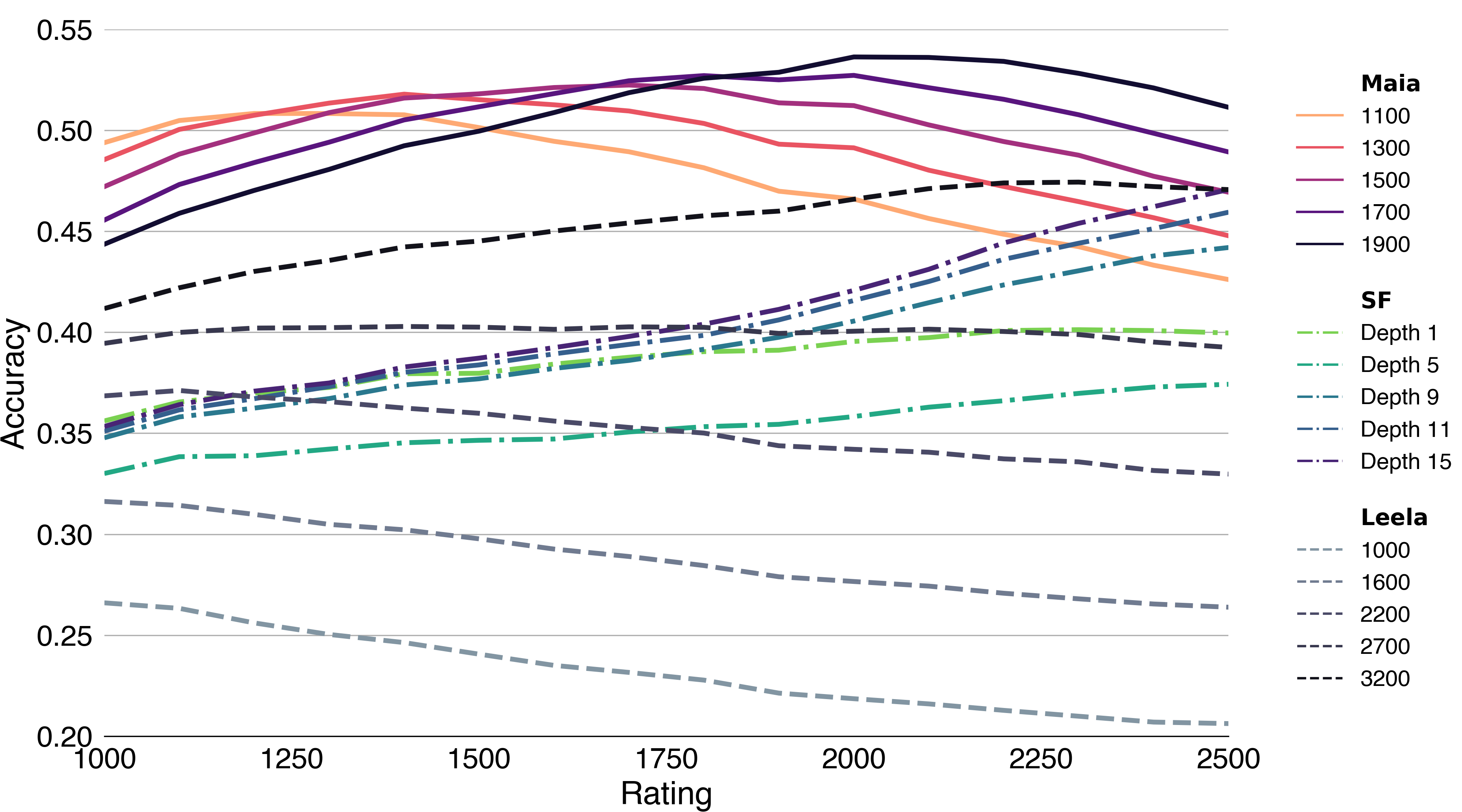Use a number of weak engines. Make them vote.
Suppose you take any number of relatively weak engines - some with deep searches but poor evaluation heuristics, some with shallow searches, some using neural networks but with limited training, some with random factors added to make them blunder a bit - and at each turn you have them vote for the best move. The result will be quite human-like - a fact that should not be too flattering for us humans!
For the most part, the composite engine would play decently - some significant amount better than any individual engine. It would rarely blunder blatantly, but it would miss deep tactics and subtle strategic moves. In particular, it would rarely (if ever) make the "computer move". Most engines, when given a position where there is an obvious very good move and a completely opaque move that is infinitesimally better, have the search depth necessary to find the latter move and make it - thus revealing their inhumanity. But most of our engines will either fail to find the weird move or their heuristic won't be fine enough to recognize its superiority. The vote will usually go to the more obvious move.
Engines also reveal their inhumanity in the precision of their defensive play and opening book. Our composite engine would lack the search depth necessary for precise defense - even if a few of the constituent engines had the depth, they would be outvoted on occasion (and it takes just one mistake to seem human). In the opening, the composite will stay on book for a while - although it will be hard to guess just which lines it will prefer. But it won't be long before the book-less or book-light engines win a vote and make an "imprecise" move. The quickest way to get the composite engine "out of book" would be to offer a sacrifice - the composite will surely be a sucker for opening gambits . . . just like most humans.
To improve the effect, the length of time displayed between moves should be proportional to the amount of agreement between the engines. If a move is unanimous to the engines, it likely would be obvious to a human, as well (if not simply forced). If there is a lot of disagreement among the engines, than the position is likely a bit tricky and the sort which would cause a human mind to linger. (Some adjustment would be required in the opening phase, in which the engines would surely have lots of disagreements simply because there isn't a lot going on in the position yet.)
Someone really needs to do this.
When I came across this question, I was a little surprised that no one knows of anyone who has tried this. The Maia engine has a bit of this idea cooked in. By trying to predict what an 1100-rated player will do, Maia achieves are rating of about 1500. But Maia isn't a composite of a bunch of 1100-rated engines, like I propose. Creating the composite that I describe doesn't seem like a difficult task. If anyone knows of an attempt, I would love to hear about it.

